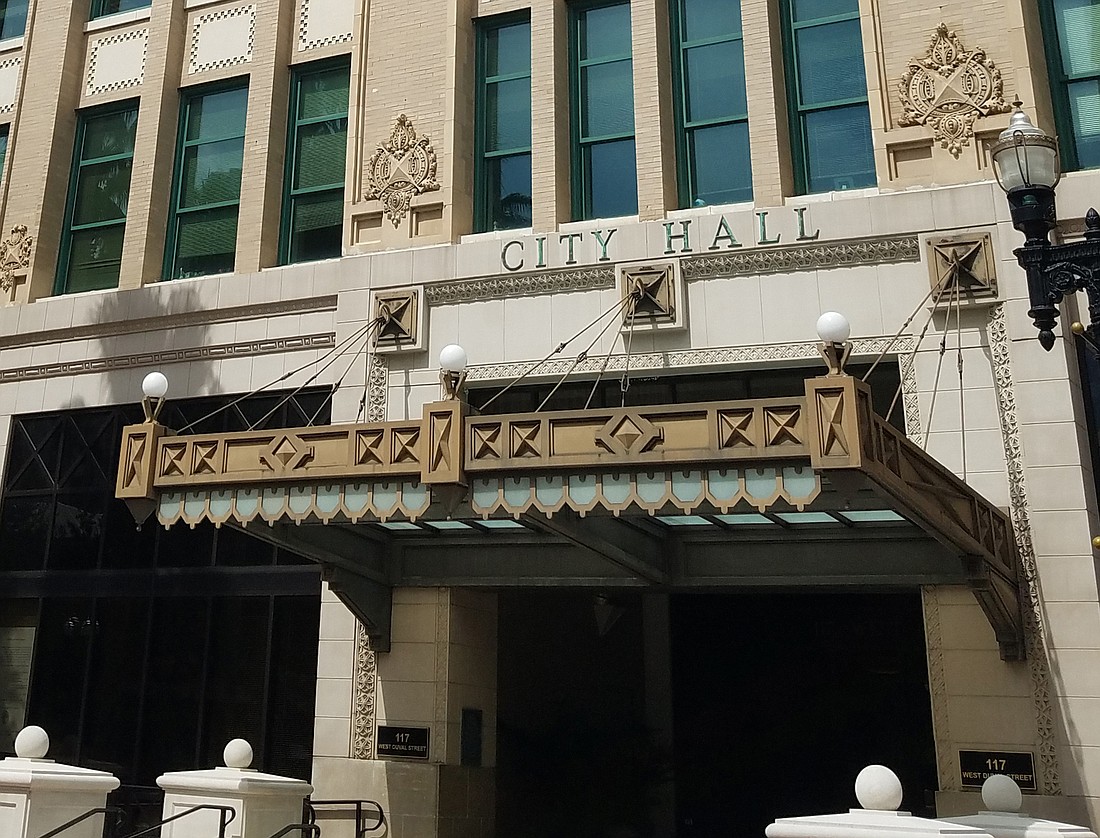
By Mike Mendenhall and Katie Garwood, staff writers
Legislation is heading to City Council for city and state incentives for two code-named projects that pledge to create 600 jobs.
Council President Scott Wilson introduced both ordinances May 7 on behalf of Mayor Lenny Curry. Both projects said economic incentives are a material factor in their decisions to expand in Jacksonville.
Project Academy, a manufacturing company, intends to establish a facility Downtown, according to a proposed economic development agreement with the city.
The draft agreement is an exhibit included with Ordinance 2020-0241.
The agreement states the company plans a $40 million capital investment that includes building renovations and equipment purchases.
Project Skateboard is an existing IT software company that wants to expand its Jacksonville presence.
Ordinance 2020-0242 asks Council to approve an economic development agreement with the unnamed company.
Each project seeks a rebate from the city and state through a Qualified Target Industry Tax Refund Program.
Academy also wants an unspecified Recapture Enhanced Value grant. The Downtown Investment Authority will file legislation for a REV grant after location is determined.
Project Academy could create up to 300 jobs by Dec. 31, 2024, according to city Office of Economic Development documents filed with the bill.
A project summary calls Project Academy a multinational manufacturer that wants to establish a facility in the Southeastern U.S.
A chart in the agreement created jointly by Academy and city officials states the company intends to create 10 jobs by Dec. 31. The performance schedule shows an additional 59 jobs by year-end 2021; 73 jobs in 2022; 103 in 2023; and 55 by Dec. 31, 2024.
The average annual wage will be $59,146 with benefits valued at 35% of that amount.
Academy hasn’t finalized a location in Jacksonville but wants to purchase or lease a site within Census tract 174.
DIA CEO Lori Boyer said April 29 that Academy will comply with regulations in the Downtown Zoning Overlay, which indicates the project will be south of the Mathews Bridge within the Census tract.
That tract is bounded by a line two blocks west of the VyStar Veterans Memorial Arena and along Palmetto Street, north to Eighth Street in Talleyrand and the St. Johns River to the south and east.
The Census tract includes a portion of the Maxwell House coffee plant at 735 E. Bay St., but the facility is not the Academy site, according to Office of Economic Development Director Kirk Wendland.
The company is evaluating port cities in Alabama, Florida, Georgia, South Carolina and Virginia, according to the summary.
Academy seeks a QTI of $5,000 per job, totaling $1.5 million. The state would provide a $4,000 per job tax credit up to $1.2 million, or 80% of the rebate. The city would match that with 20%, or $1,000 a job, or $300,000.
The REV grant would rebate 50% of the increase in property and tangible personal property taxes generated from the capital improvements for 10 years after it takes possession of the site and starts operations, according to economic development office documents presented April 27 to the Mayor’s Budget Review Committee.
The city did not identify the type of manufacturing Academy performs.
Project Skateboard is described as an IT company with a Jacksonville presence that designs software for health care, transportation and financial institutions.
Its proposed economic development agreement with the city included with the legislation states the location of the company’s Jacksonville expansion is “to be determined.” It will make a capital investment of $1.4 million to include building renovations and equipment.
The company will retain 100 jobs in Jacksonville and expand its local workforce by 300 jobs with an average annual salary of $74,300, the agreement states.
It seeks a QTI rebate of $1.8 million, or $6,000 per job, after the jobs are created and the taxes paid.
The state would rebate $4,800 per job, up to $1.44 million total, to be repaid over a six-year payout starting in 2021.
The city would refund up to $360,000, or $1,200 per job.